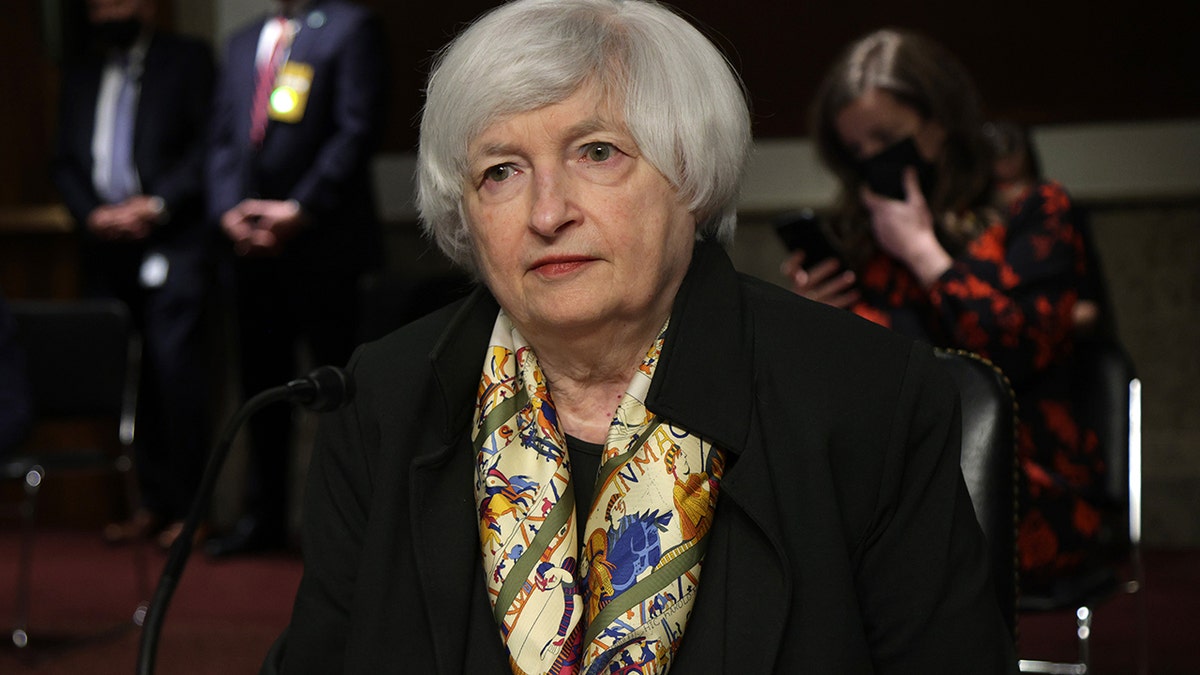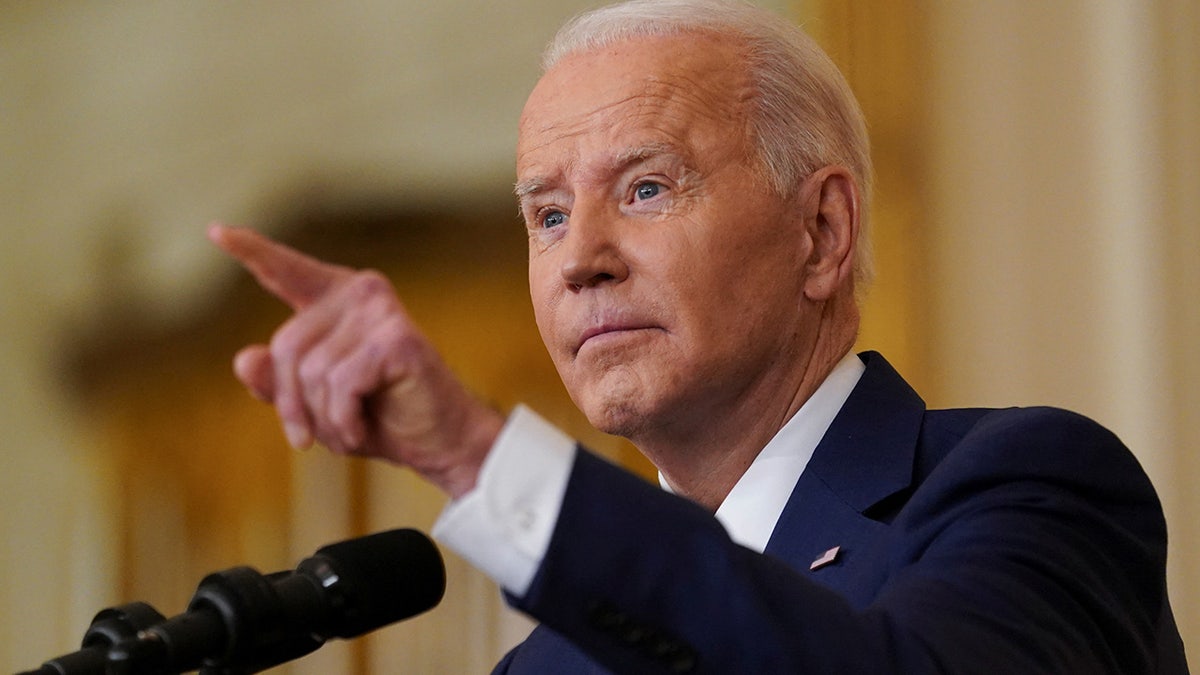White House officials won't describe the economy as being in a recession
Fox News White House correspondent Peter Doocy has the latest on the state of the American economy on 'Special Report.'
Some liberal media outlets are beginning to fall in line with the Biden administration's spin on redefining what a recession is ahead of the release of potentially devastating economic stats.
Economic data to be revealed on Thursday may show two consecutive quarters of negative gross domestic product (GDP) growth, which has long been the measure that determines whether the U.S. is in a recession.
However, there's been a major push by the White House to preemptively declare that even if the U.S. economy has shrunk in two consecutive quarters, that doesn't necessarily mean the economy is in a recession.
Jared Bernstein of the White House Council of Economic Advisers insisted that neither President Biden nor the White House was going to "sugarcoat" the incoming GDP numbers, telling CNN on Saturday that only the National Bureau of Economic Research's Business Cycle Dating Committee can determine whether the U.S. economy is in a recession. Treasury Secretary Janet Yellen asserted on Sunday that two quarters of negative GDP growth is not the "technical definition" of a recession despite acknowledging that it is the "common" definition, defining it on NBC as a "broad-based contraction in the economy" based on a wide range of data.
RECESSION WATCH: MORE AMERICANS STRUGGLING TO PAY THEIR BILLS, CENSUS BUREAU REPORTS

Treasury Secretary Janet Yellen insisted on Sunday that two quarters of negative GDP growth is not the "technical definition" of a recession. (Alex Wong/Getty Images)
White House Director of the National Economic Council Brian Deese echoed Yellen in citing the so-called "technical definition" of a recession, which he said on CNN involves a "much broader spectrum of data points," and dismissed having "technical debates about backward-looking data." White House adviser Gene Sperling also pushed similar talking points during his appearance on Fox News' "The Story," suggesting on Monday that the "jobs market" plays a significant role in what actually contributes to a recession.
Now, the media is embracing the talking points.
New York Times columnist Paul Krugman told readers "there’s a pretty good chance" that GDP shrank in the second quarter, which will trigger "breathless commentary" about there being a recession. But he insisted "we won’t be."
"That’s not how recessions are defined; more important, it’s not how they should be defined," Krugman wrote Tuesday. "It’s possible that the people who actually decide whether we’re in a recession… will eventually declare that a recession began in the United States in the first half of this year, although that’s unlikely given other economic data."
His assurances about a recession not taking place came just days after he offered a mea culpa for wrongly predicting in 2021 that the country wouldn't face severe inflation. He also predicted in 2016 a global recession would erupt following Donald Trump's election victory.

New York Times columnist Paul Krugman predicts the country won't face a recession after wrongly predicting it wouldn't face crushing inflation. (Ricardo Rubio/Europa Press via Getty Images)
New York Times economic reporter Ben Casselman insisted it's "hard to say" if the country is facing a recession regardless of what Thursday's numbers reveal.
"Economic output, as measured by gross domestic product, fell in the first quarter of the year. Government data due this week may show that it fell in the second quarter as well. Such a two-quarter decline would meet a common, though unofficial, definition of a recession," Casselman wrote Monday. "Most economists still don’t think the United States meets the formal definition, which is based on a broader set of indicators, including measures of income, spending and job growth."
Like the White House, Casselman referred to NBER's Business Cycle Dating Committee, something he says "tries to be definitive" and defended its lengthy timeline ("as much as a year") to determine if a recession occurred, writing, "even if we are already in a recession, we might not know it — or, at least, might not have official confirmation of it — until next year."
Boston Globe reporter Jim Puzzanghera struck a similar tone on Saturday, claiming "it's not officially a recession until a small group of experts empaneled by the National Bureau of Economic Research in Cambridge says so — and they are known to take their time."
Politico's Ben White tweeted Tuesday, "The White House is pretty obviously right that even two quarters of shrinking GDP would not show the economy is currently in recession." He wrote last month, though, that "I’m sorry to report that the conditions are ripe for a slide in gross domestic product growth that lasts at least two quarters, the technical definition of recession."
After a Twitter user pointed out his prior language, he wrote, "I did. Should have elaborated further on the 'technical' bit. Mea culpa."
MSNBC's Stephanie Ruhle praised the piece White wrote where he reported, "Many economists agree that this post-pandemic moment doesn’t meet many criteria for recession."

President Biden holds a news conference at the White House on Jan. 19, 2022. (Reuters/Kevin Lamarque)
The Associated Press published an "EXPLAINER" on when to know a recession has begun, telling readers, "By one common definition, the U.S. economy is on the cusp of a recession. Yet that definition isn’t the one that counts."
"On Thursday, when the government estimates the gross domestic product for the April-June period, some economists think it may show that the economy shrank for a second straight quarter. That would meet a longstanding assumption for when a recession has begun," AP reporter Christopher Rugaber wrote Monday. "But economists say that wouldn’t mean that a recession had started. During those same six months when the economy might have contracted, businesses and other employers added a prodigious 2.7 million jobs — more than were gained in most entire years before the pandemic. Wages are also rising at a healthy pace, with many employers still struggling to attract and retain enough workers."
The AP's "EXPLAINER" was later shared by The Washington Post.
Bloomberg analyst Simon White urged viewers "you've got to be quite careful" of looking at just one indicator of a recession like negative GDP growth, insisting on Tuesday evaluating a recession involves a "really broad-based sweep of indicators."
White went on to suggest that looking at GDP is "useful" but dismissed it as a "red herring."

Brian Deese, director of the National Economic Council, speaks during a news conference at the White House. (Michael Reynolds/EPA/Bloomberg via Getty Images)
CNN White House reporter Jeremy Diamond, after a network panel mocked the White House's attempt of redefining what a recession is, said the White House was "actually correct" to say that consecutive quarters of negative growth weren't indicative of a recession.
CLICK HERE TO GET THE FOX NEWS APP
"The White House has been eager to push back on this notion that two consecutive quarters of negative GDP growth automatically equals a recession. Yes, it is a rule of thumb. But the White House is really emphasizing here, and trying to educate the public essentially, over the last week, that there are all these other economic indicators that also go into that, and that it is not necessarily indicative of a recession. They are actually correct on that," Diamond said Tuesday. "The National Bureau of Economic Research, which is the nonprofit, nonpartisan body that effectively determines whether or not the U.S. economy is in a recession, also takes other factors into account, including employment, personal income, industrial production. GDP numbers are a significant part of that equation."








































